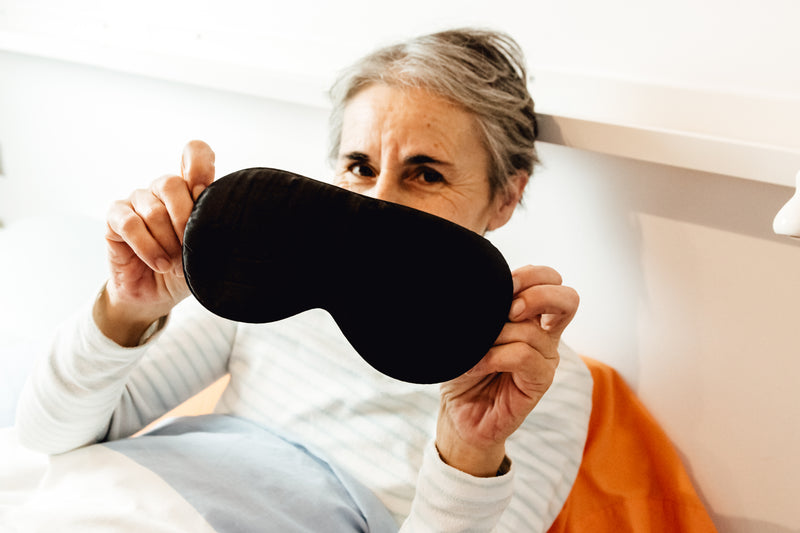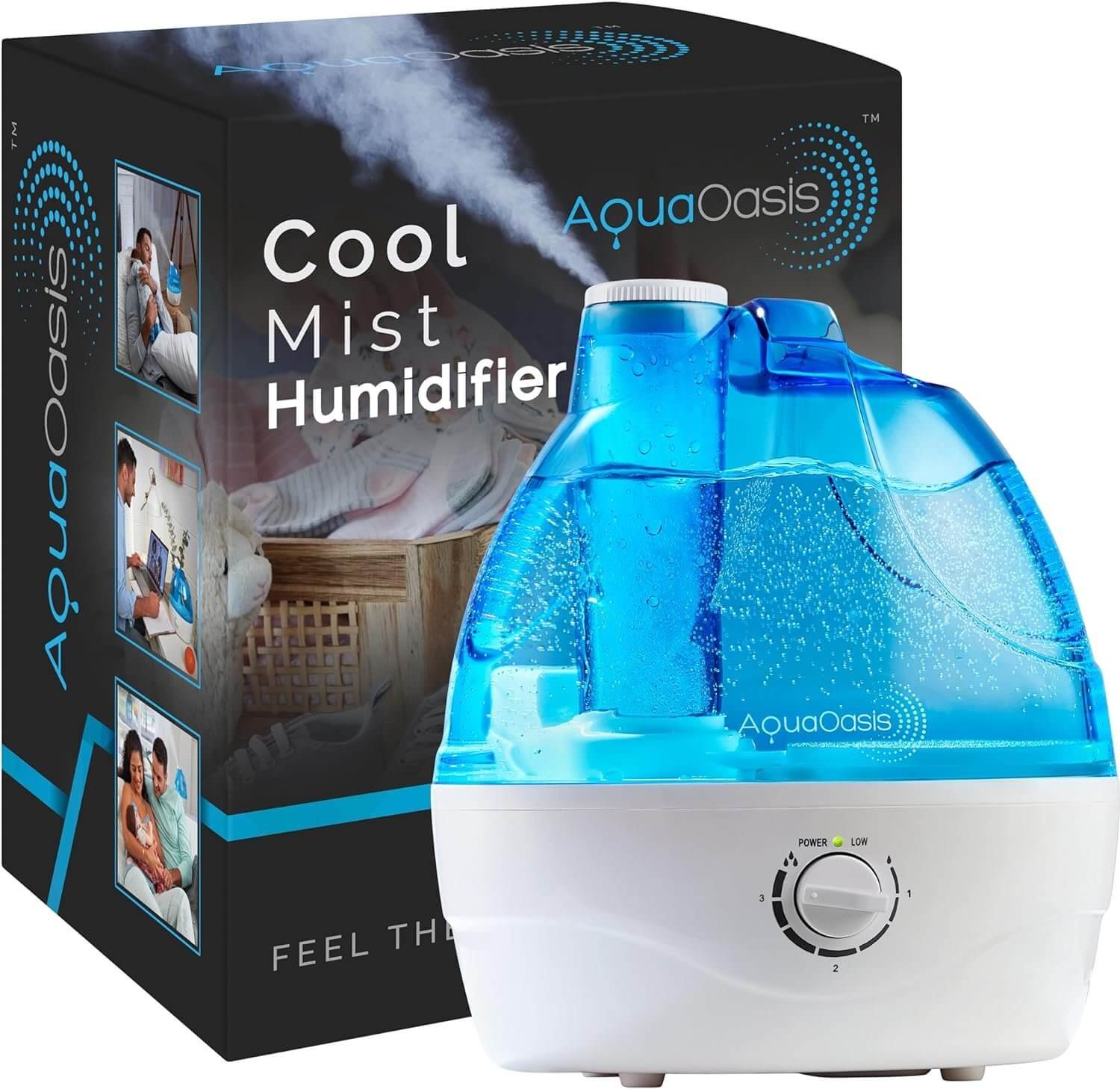The Importance of Sleep Aid Products
Sleep is an essential part of maintaining good physical and mental health. It is necessary for the body to repair and recover from the day’s activities. However, not everyone is able to get a good night’s sleep on their own. This is where sleep aid products come in. Sleep aid products are designed to help people fall asleep faster and stay asleep longer. In this article, we will discuss the different types of sleep aid products and how they work. We will also look at the benefits and potential downsides of using sleep aid products, and how to choose the right one for you.
The Link Between Sleep and Overall Health
According to the Sleep Foundation, sleep plays a crucial role in maintaining a healthy immune system. Lack of sleep can affect the body’s ability to fight off infections and diseases. Sleep also plays a role in regulating hormones that affect appetite, metabolism, and stress. Poor sleep quality has been linked to an increased risk of obesity, diabetes, heart disease, and mental health issues such as depression and anxiety.
Common Sleep Disorders and Their Impact
Sleep disorders are common and can affect people of all ages. Some of the most common sleep disorders include insomnia, sleep apnea, restless leg syndrome, and narcolepsy. These disorders can have a significant impact on a person’s quality of life, causing fatigue, irritability, and difficulty concentrating during the day.
Role of Sleep Aid Products
Sleep aid products are designed to help people with sleep disorders get a good night’s sleep. They can be used to treat short-term or occasional sleeplessness or as a long-term solution for chronic insomnia. Sleep aid products work in different ways, depending on the type of product. Non-prescription sleep aids such as antihistamines, melatonin, and valerian supplements are common options, while prescription sleep aids may include benzodiazepines, non-benzodiazepine hypnotics, ramelteon, suvorexant, and antidepressants. Natural sleep aids such as lavender, passionflower, and CBD are also gaining popularity. It is important to consult with a healthcare provider before using sleep aid products, especially if you have other health conditions or take other medications.

Types of Sleep Aid Products
There are different types of sleep aid products available on the market. In this section, we will discuss the different types of sleep aid products and how they work.
Over-the-Counter Products
Over-the-counter (OTC) sleep aid products are available without a prescription. They can be useful for occasional sleeplessness but are not a long-term solution for chronic insomnia. Some common OTC sleep aid products include:
Antihistamines
According to the Mayo Clinic, antihistamines are the most common ingredient in OTC sleep aids. They work by blocking histamine, a chemical that can trigger wakefulness and alertness in the body. Antihistamines can cause drowsiness and help people fall asleep faster, but they may also have side effects such as dry mouth, dizziness, and blurred vision. They can also interact with other medications or health conditions, so it is important to consult with a healthcare provider before using antihistamines for sleep.
Melatonin Supplements
Melatonin is a hormone that regulates sleep and wakefulness in the body. According to the Sleep Foundation, melatonin supplements are a popular choice for people looking to improve their sleep quality. Melatonin supplements can help people fall asleep faster and improve their sleep quality, but they can also have side effects such as headache, nausea, and dizziness. It is important to consult with a healthcare provider before using melatonin supplements, especially for pregnant or breastfeeding individuals and children.
Valerian Supplements
Valerian is an herb that has been used for centuries to treat insomnia and anxiety. According to the Mayo Clinic, valerian supplements can help people fall asleep faster and improve their sleep quality. However, they can also have side effects such as headache, dizziness, and upset stomach. They can also interact with other medications or health conditions, so it is important to consult with a healthcare provider before using valerian supplements for sleep.
Natural Sleep Aids
Natural sleep aids are products that are derived from natural sources such as plants or minerals. They are often marketed as a safer and more natural alternative to prescription or OTC sleep aids. Some common natural sleep aids include:
Melatonin
Melatonin is a naturally occurring hormone that regulates sleep and wakefulness in the body. According to Forbes, melatonin supplements are a popular choice for people looking for a natural sleep aid. Melatonin supplements can help people fall asleep faster and improve their sleep quality, but they can also have side effects such as headache, nausea, and dizziness. It is important to consult with a healthcare provider before using melatonin supplements, especially for pregnant or breastfeeding individuals and children.
Lavender
Lavender is an herb that is commonly used in aromatherapy and is believed to have a calming effect on the body. According to the Sleep Foundation, lavender can help improve sleep quality and reduce anxiety. Lavender can be used in the form of essential oils, sprays, or sachets.
Valerian
Valerian is an herb that has been used for centuries to treat insomnia and anxiety. According to the Sleep Foundation, valerian supplements can help people fall asleep faster and improve their sleep quality. However, they can also have side effects such as headache, dizziness, and upset stomach. They can also interact with other medications or health conditions, so it is important to consult with a healthcare provider before using valerian supplements for sleep.
German Chamomile
German chamomile is an herb that is commonly used in tea and is believed to have a calming effect on the body. According to the Sleep Foundation, German chamomile can help improve sleep quality and reduce anxiety. German chamomile can be used in the form of tea or in essential oils.
Passionflower
Passionflower is an herb that is commonly used to treat anxiety and insomnia. According to the Sleep Foundation, passionflower
Benefits and Potential Downsides of Sleep Aid Products
While sleep aid products can be beneficial for people with sleep disorders, they also come with potential downsides. In this section, we will discuss the benefits and potential downsides of using sleep aid products.
Benefits of Sleep Aid Products
Improved Sleep Quality
The primary benefit of sleep aid products is improved sleep quality. Sleep aid products can help people fall asleep faster and stay asleep longer, leading to better physical and mental health.
Reduced Fatigue
Sleep aid products can also help reduce fatigue during the day. People who do not get enough sleep at night are more likely to feel tired and have difficulty concentrating during the day.
Potential Downsides of Sleep Aid Products
Side Effects
Sleep aid products can have side effects such as dry mouth, dizziness, and upset stomach. Some people may also experience allergic reactions to certain ingredients in sleep aid products.
Interactions with Other Medications
Sleep aid products can interact with other medications or health conditions. It is important to consult with a healthcare provider before using sleep aid products, especially if you take other medications or have other health conditions.
Dependence
Some sleep aid products can be habit-forming and lead to dependence. It is important to use sleep aid products as directed and not rely on them as a long-term solution for sleep disorders.
Choosing the Right Sleep Aid Product
When choosing a sleep aid product, it is important to consider the benefits and potential downsides. It is also important to consult with a healthcare provider before using sleep aid products, especially if you have other health conditions or take other medications. Here are some factors to consider when choosing a sleep aid product:
Type of Sleep Disorder
Different sleep aid products are designed to treat different types of sleep disorders. It is important to identify the type of sleep disorder you have and choose a sleep aid product that is designed to treat that specific disorder.
Ingredients
It is important to read the labels of sleep aid products and identify any ingredients that you may be allergic to or that may interact with other medications or health conditions.
Dosage
It is important to follow the recommended dosage instructions for sleep aid products. Taking too much of a sleep aid product can lead to side effects and dependence.
Safety
It is important to choose sleep aid products that have been tested by third-party organizations and have been deemed safe for use. It is also important to choose sleep aid products that are manufactured by reputable companies and have a good track record of safety and efficacy.

How to Improve Sleep Quality Naturally
While sleep aid products can be helpful for improving sleep quality, there are also natural ways to improve sleep quality. In this section, we will discuss some tips for improving sleep quality naturally.
Establish a Bedtime Routine
Establishing a bedtime routine can help signal to your body that it is time to sleep. A bedtime routine can include activities such as taking a warm bath, reading a book, or practicing relaxation techniques such as deep breathing or meditation.
Create a Sleep-Conducive Environment
Creating a sleep-conducive environment can help promote sleep. This can include keeping the bedroom cool and dark, using comfortable bedding, and minimizing noise and distractions.
Avoid Stimulants Before Bed
Stimulants such as caffeine and nicotine can interfere with sleep. It is important to avoid consuming stimulants before bed or in the evening.
Limit Screen Time
Exposure to blue light from electronic devices such as smartphones and tablets can interfere with sleep. It is important to limit screen time before bed and avoid using electronic devices in the bedroom.
Practice Relaxation Techniques
Practicing relaxation techniques such as deep breathing, meditation, or yoga can help reduce stress and promote relaxation, leading to better sleep quality.
Exercise Regularly
Regular exercise can help improve sleep quality. However, it is important to avoid exercising too close to bedtime, as this can interfere with sleep.
Maintain a Healthy Diet
Maintaining a healthy diet can also help improve sleep quality. It is important to avoid consuming heavy meals or alcohol before bed, as this can interfere with sleep.
Seek Medical Help if Necessary
If you continue to have difficulty sleeping despite making lifestyle changes, it may be necessary to seek medical help. A healthcare provider can help identify underlying sleep disorders and recommend appropriate treatment options, which may include sleep aid products or other medications.

Conclusion
Getting a good night’s sleep is essential for physical and mental health. Sleep aid products can be helpful for people with sleep disorders, but they also come with potential downsides. It is important to choose sleep aid products carefully and to consult with a healthcare provider before using them.
In addition to sleep aid products, there are also natural ways to improve sleep quality. By establishing a bedtime routine, creating a sleep-conducive environment, avoiding stimulants before bed, limiting screen time, practicing relaxation techniques, exercising regularly, maintaining a healthy diet, and seeking medical help if necessary, you can improve your sleep quality and overall well-being.
Remember, sleep is an essential part of a healthy lifestyle, and taking steps to improve your sleep quality can have a positive impact on all aspects of your life.

Frequently Asked Questions
Are sleep aid products safe?
Sleep aid products can be safe when used as directed. However, they can also come with potential downsides such as side effects, interactions with other medications, and dependence. It is important to choose sleep aid products carefully and to consult with a healthcare provider before using them.
What are some natural ways to improve sleep quality?
Establishing a bedtime routine, creating a sleep-conducive environment, avoiding stimulants before bed, limiting screen time, practicing relaxation techniques, exercising regularly, maintaining a healthy diet, and seeking medical help if necessary are all natural ways to improve sleep quality.
Can sleep aid products be habit-forming?
Some sleep aid products can be habit-forming and lead to dependence. It is important to use sleep aid products as directed and not rely on them as a long-term solution for sleep disorders.
How do I choose the right sleep aid product?
When choosing a sleep aid product, it is important to consider the benefits and potential downsides. It is also important to consult with a healthcare provider before using sleep aid products, especially if you have other health conditions or take other medications. Factors to consider when choosing a sleep aid product include the type of sleep disorder you have, the ingredients, the dosage, and the safety of the product.
What should I do if I continue to have difficulty sleeping?
If you continue to have difficulty sleeping despite making lifestyle changes, it may be necessary to seek medical help. A healthcare provider can help identify underlying sleep disorders and recommend appropriate treatment options, which may include sleep aid products or other medications.
Ready to Get a Good Night’s Sleep?
Getting a good night‘s sleep is essential for physical and mental health. If you are struggling with sleep, there are many options available to help improve your sleep quality.
Sleep aid products can be helpful for people with sleep disorders, but they also come with potential downsides. It is important to choose sleep aid products carefully and to consult with a healthcare provider before using them.
In addition to sleep aid products, there are also natural ways to improve sleep quality. By establishing a bedtime routine, creating a sleep-conducive environment, avoiding stimulants before bed, limiting screen time, practicing relaxation techniques, exercising regularly, maintaining a healthy diet, and seeking medical help if necessary, you can improve your sleep quality and overall well-being.
We hope that this article has been helpful in providing you with information about sleep aid products and natural ways to improve sleep quality. Be sure to check out our other great content for more health and wellness tips!
Q & A
Question: Who can benefit from sleep aid products?
Answer: Sleep aid products can benefit individuals with occasional or chronic sleeplessness, but it is important to consult with a healthcare provider before using them.
Question: What are some potential downsides of sleep aid products?
Answer: Some potential downsides of sleep aid products include side effects, interactions with other medications, and dependence.
Question: How do I choose the right sleep aid product?
Answer: When choosing a sleep aid product, consider the benefits and potential downsides. Consult with a healthcare provider and consider the type of sleep disorder, the ingredients, the dosage, and the safety of the product.
Question: Who should avoid using sleep aid products?
Answer: Pregnant or breastfeeding individuals, children, and individuals with certain health conditions or taking certain medications should avoid using sleep aid products.
Question: What are some natural ways to improve sleep quality?
Answer: Establishing a bedtime routine, creating a sleep-conducive environment, avoiding stimulants before bed, limiting screen time, practicing relaxation techniques, exercising regularly, maintaining a healthy diet, and seeking medical help if necessary are all natural ways to improve sleep quality.
Question: How do I avoid becoming dependent on sleep aid products?
Answer: To avoid becoming dependent on sleep aid products, use them as directed and not as a long-term solution for sleep disorders. Consult with a healthcare provider and consider natural ways to improve sleep quality.

